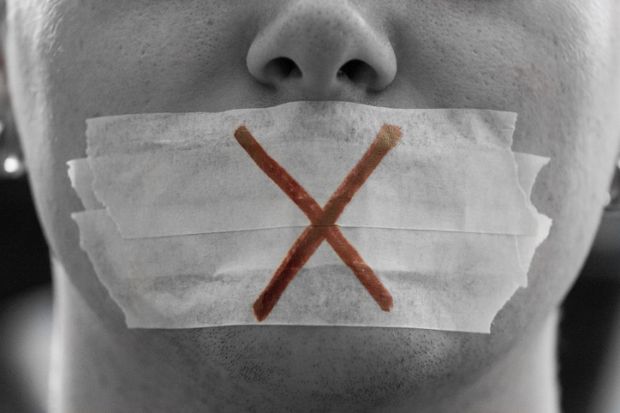The student protests against the Oxford Union’s decision last November to invite the US far-right figure Steve Bannon to speak there were depicted by the media as just another example of modern, leftist students attempting to “no platform” a speaker they disagree with.
There is certainly a growing list of far-right figures whose invitation by the University of Oxford’s independent debating society or its equivalent, the Cambridge Union, has led to protests (sometimes resulting in cancellations). Among them are the former British National Party leader Nick Griffin, French National Front leader Marine Le Pen and British far-right activist Tommy Robinson.
But such controversies are nothing new. For instance, while British fascism largely retreated into obscurity after the Second World War (until the formation of the National Front in 1967), Oswald Mosley, the former leader of the British Union of Fascists, continued to receive regular invitations to speak at universities throughout the late 1950s and early 1960s, including at the Oxford and Cambridge Unions.
The invitations often came from Conservative or Liberal student groups, ostensibly interested in promoting free speech for “minority” views. But although Mosley was often billed as a brilliant orator, the publicity guaranteed by his notoriety was clearly another motivation to book him.
His engagements drew considerable protest from Labour, Communist and Jewish student groups – who succeeded in hitting the former blackshirt leader with a custard pie and jelly on separate occasions at Cambridge. The Oxbridge authorities made efforts to prevent such disruptions, but other universities prevented Mosley from speaking entirely. In 1960, the vice-chancellor of the University of Leicester, Sir Charles Wilson, banned him from a debate on nuclear disarmament, citing possible disturbances, as well as “the considerable offence he would give in the university”. The Daily Mail reported that more than 1,000 students protested, while the students’ union president complained that students had missed out on seeing “a speaker of outstanding brilliance”.
As the student movement started to grow in the late 1960s, there were increased protests against various right-wing figures invited to speak at universities. Students at the University of Essex protested against Conservative MP Enoch Powell in 1968, weeks before his infamous “Rivers of Blood” speech. In the same year, an official from the US Embassy had paint thrown over him at the University of Sussex as part of a student protest against the war in Vietnam. Five years later, American academic Samuel Huntington was prevented from speaking at Sussex for his prior role with the US military. And, also in 1973, Maoists attacked psychologist Hans Eysenck when he rose to speak at the London School of Economics about IQ and race. It is within this context that the “no platform” policy became established at students’ unions in 1974.
Since this time, university authorities have had to weigh whether to allow controversial speakers against concerns about public disorder. Decisions are often made by student unions, sometimes in consultation with the police, with an eye both on Margaret Thatcher’s Education Act of 1986, which sets out universities’ legal obligation to protect free speech, and on the Public Order Act of the same year, as well as the Equality Act of 2010, which outlaws hate speech.
A court case brought against the University of Liverpool by its Conservative Association in the early 1990s (after it cancelled a speech by a South African diplomat for security reasons) suggests that there are limits on the extent to which public order concerns should bear, but university administrations, students' unions and the police have predominantly erred on the side of caution. Guidelines produced last year by the UK Parliament’s Joint Committee on Human Rights also emphasise the legal limits on free speech, rather than the legal requirements to uphold free speech.
So whatever the popular press may allege about modern “snowflake students”, it is clear that tensions over incendiary right-wing speech have a long history. After 50 years of wrangling, easy answers continue to elude us.
Evan Smith is a research fellow in history in the College of Humanities, Arts and Social Sciences at Flinders University. He blogs at Hatful of History. He is currently completing a book on the history of no platform and free speech at UK universities for Routledge’s Fascism and Far Right series.
Register to continue
Why register?
- Registration is free and only takes a moment
- Once registered, you can read 3 articles a month
- Sign up for our newsletter
Subscribe
Or subscribe for unlimited access to:
- Unlimited access to news, views, insights & reviews
- Digital editions
- Digital access to THE’s university and college rankings analysis
Already registered or a current subscriber? Login






